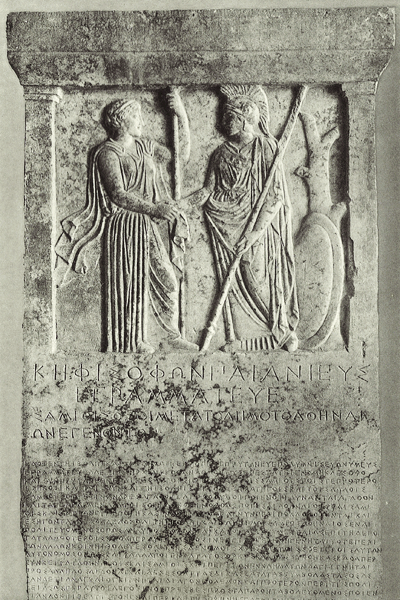Law of the Greek Polis and Epigraphy
Inscriptions on stone, bronze tablets and potsherds are apart from the literary texts the most important source for the Greek law in antiquity. Since a couple of decades the documentary evidence builds a main focus of the relevant research activities. Epigraphical sources render information on private and state law, on procedural and substantive legal regulations as well as on the constitution and administration of ancient city states and the intergovernmental law. Inscriptions also throw light on the constitution and functioning of private associations and corporations. The research activity of the work group concentrates on the procedural inscriptions of the Greek poleis. Their reedition with a commentary and collection in a corpus was begun under the chairman of the former Commission for Ancient Law, Walter Selb at the suggestion of Hans Julius Wolff. The comprehension of the course of various public and private lawsuits and of the administration of justice in the ancient polis often allows for a deeper insight in its political and social conditions. Thereby the history of ancient law does not perceive itself as an isolated subject but as an integral part of classical studies. The close connection between juridical and historical research is represented in the work group by the members of its scientific staff and by the various research projects.
In the past decades the investigation of Greek Law – with the exception of papyrology with its focus on hellenistic Egypt – developed from a scientific field which until then was concentrated on the state of Athens and the relevant literary sources into one of the core research activities of Greek epigraphy. Thereby the research interest does not only focus on the interpretation of single documents but also on the problem of the fundamental principles of Greek law and the ongoing debate of its unity and diversity. The abundance of already published texts from ancient Greek cities is continuously increased by new findings. Thereby the members of the scientific staff of the work group often get the opportunity to explore still unpublished material and to participate in its edition.
The series of commentaries on the epigraphical testimonies for the procedural law of the Greek polis was inaugurated in 1978 and 1981 by two studies on texts from Samos. In 1994, the first compendium on Arcadia (Thür/Taeuber) was published. Currently the procedural inscriptions of Argolis are prepared for print (Thür/Harter-Uibopuu). Furthermore, the work on the procedural inscriptions of Athens is continued (Thür/Harter-Uibopuu).
